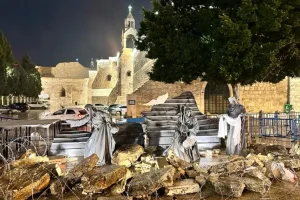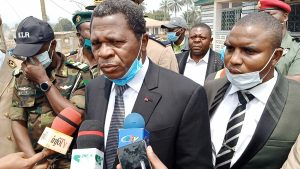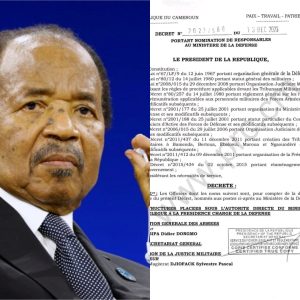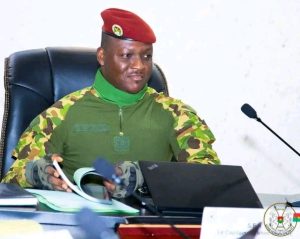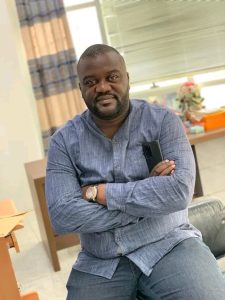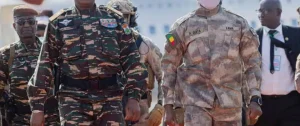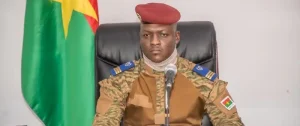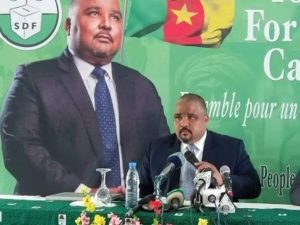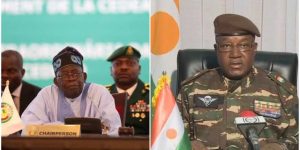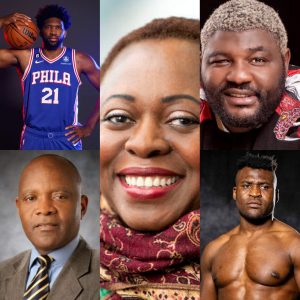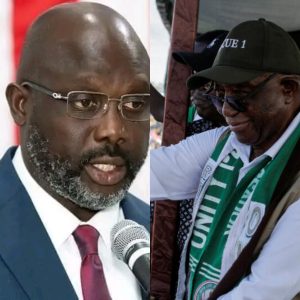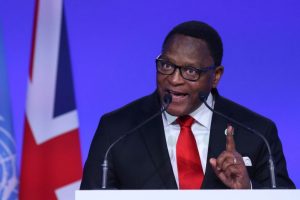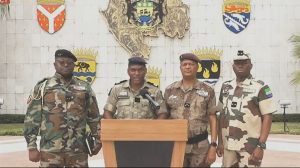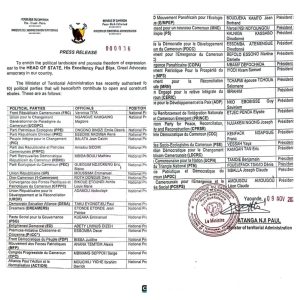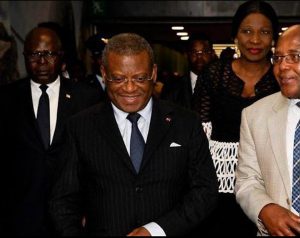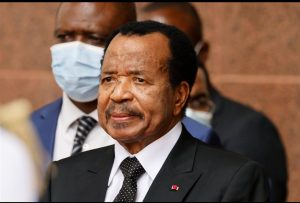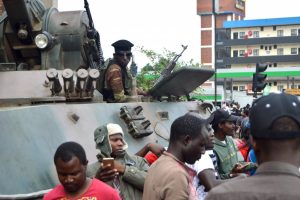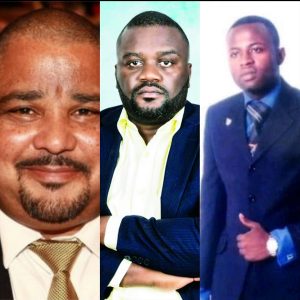“It’s a green-light for Cameroon’s constitution to be amended” one wrote on social media
Cameroonians have raised high thoughts about a major ammendment of the Constitution which may be imminent in the days ahead
The constitutional commission meets on Monday June 29, a press release issued from the government has announced
Early this month, in his June 2 address, Maurice Kamto, opposition party leader and president of the CRM party said Cameroon should be prepared for elections, noting that citizens will never accept any form of succession at the head of the state.
“We stand against any manipulation, even in the constitution, to take over the supreme leadership by any means except elections” Kamto said
The speech which raised brows as to what’s cooking up from the presidency may have gotten more weight with the proclaimed meeting of the constitutional council.
It came weeks after an uproar on social media declared president Biya dead.
Biya had not made a public appearance for over a month in the midst of the Covid-19 crisis.
But the ministry of communication denied the claims and later on, pictures of Biya appeared on social media, followed by a speech in May which was widely criticised.
The speech did not show one of the President’s ears.
Kamto insisted that prior to any elections in Cameroon, there must be a resolution to the Anglophone crisis in the North West and South West regions, and an amendment of the electoral code
Read Kamto’s entire speech below
Back In History
Under the constitution adopted in 1996, Cameroon was made a unitary republic with an executive President – elected every seven years – who appoints the Prime Minister and council of ministers.
The President also appoints the provincial governors, the judges and government delegates in main towns.
In April 2008, Cameroon’s parliament approved a constitutional amendment allowing the President to serve for more than two terms.
Presidential elections must then be conducted not less than 20 days or more than 120 days following the vacancy.
The National Assembly has 180 members, directly elected every five years by universal adult suffrage, and has three sessions a year, in March, June and November.
The constitution also provides for an upper house, the Senate, with 100 members, 70 per cent of whom are elected every five years by electoral colleges comprising local government councillors and 30 per cent nominated by the President.
Each region is thus represented in the Senate by ten senators, seven of whom are indirectly elected and three appointed by the President.
Elections to the Senate were held for the first time on 14 April 2013.
The National Assembly has 180 members, directly elected every five years by universal adult suffrage, and has three sessions a year, in March, June and November.
The constitution also provides for an upper house, the Senate, with 100 members, 70% of whom are elected every five years by electoral colleges comprising local government councillors and 30% nominated by the president.
Each region is thus represented in the Senate by ten senators, seven of whom are indirectly elected and three appointed by the president.
Elections to the Senate were held for the first time on 14 April 2013
The Constitution And Elections
In early 2008, the National Assembly approved a constitutional amendment removing presidential term limits which opened the way for President Biya to seek re-election.
Biya won the presidential election in October 2011 increasing his share of the vote to about 78.0 per cent.
His main rival in a field of more than 20 candidates was John Fru Ndi (SDF) who secured about 10.7 per cent of the vote.
The election was observed by a Commonwealth expert team.
In the first Senate elections, held on 14 April 2013, the ruling CPDM won 56 of the 70 elective seats and the SDF 14.
National Assembly and local elections were held on 30 September 2013, when the CPDM won 148 seats in the Assembly, the SDF 18, the UNDP five, the UDC four and the UPC three.
Since 2017, we have staked our lives to provide tailor-made news reports to our readers from war zones and hot political rivalries in Cameroon - And we do so for FREE.
As a small online media now reaching over 100,000 monthly readers on all our platforms, we have to rely on hiring a small team to help keep you informed
The best way to support our online reporting is by considering a measly sum for our team on the ground as little as $1. Now you can make a donation to us below, it only takes one click...
[sdonations]1[/sdonations]




